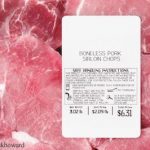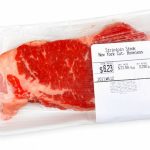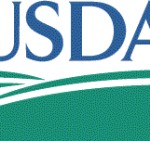It kind of got lost in all the good vs. evil stuff and cool CGI, but tariffs were a significant part of the plot in Star Wars. They're also a plot point of a protracted disagreement between the U.S. and Canada about country-of-origin (COOL) food labels: COOL wars. Historically, COOL labels have had mixed success at accomplishing their goal: providing consumers with helpful information so they can make informed choices. If you know that Country A is known for the high-quality kiwi it produces and that they're sticklers for food safety, when you see kiwi at the market with a sticker or sign that says: Product of Country A, you will put them in your cart. And roll right by if the converse is true. But when an animal is born in one country, raised in another and slaughtered in yet another, … [Read more...]
Canada Unhappy With USDA’s COOL Rule
Canada is unhappy with the U.S. Department of Agriculture’s (USDA’s) final ruling on Country of Origin Labeling (COOL) which requires meat labels to specify the country or countries where the animal was born, raised and slaughtered. For months, Canadian Agriculture Minister Gerry Ritz has warned that Canada will take retaliatory actions if the measure, which it considers discriminatory, is passed. Both Canada and Mexico told the World Trade Organization (WTO) that COOL labeling, as it was first enacted in the U.S. in 2008, presented a barrier to trade. The WTO maintained that the U.S. had the right to require COOL, but the labels didn’t provide enough useful information to consumers to justify the additional cost it created for imported meat. Since that time, the U.S. has worked to … [Read more...]
USDA Releases Final COOL Rule Giving Consumers What They Want, Information
Americans want to know where their food comes from and now, thanks to the U.S. Department of Agriculture’s (USDA’s) final ruling on Country of Origin Labeling (COOL), they’ll have a lot more information. The new rule eliminates the vagaries of current labels, such as “mixed origin” and provides consumers with the country where the animal was born, raised and slaughtered. The Farm Security and Rural Investment Act of 2002 and the Food, Conservation and Energy Act of 2008 required retailers to tell customers the country of origin of meats, poultry, vegetables, fruits, and some nuts. When the USDA implemented that rule in 2008 Canada and Mexico objected calling the COOL law a barrier to trade and brought their grievance to the World Trade Organization (WTO). The WTO ruled that the U.S. … [Read more...]
After E. coli Outbreak, Canada Ramps Up Food Safety
Last fall in Canada, the XL Foods E. coli outbreak sickened 18 people and triggered the largest meat recall in Canadian history. Now, Canada is ramping up it food safety efforts through its Safe Food for Canadians Action Plan. The goal of the plan is to strengthen food safety rules, create a more effective inspection system, provide more information to consumers and develop regulation that will enact the Safe Food for Canadians Act, passed in November 2012. As part of the plan, the Canadian Food Inspection Agency (CFIA) is strengthening some of its beef safety rules and has created new requirements to control E. coli in federally-registered beef plants including required labeling of all mechanically tenderized beef cuts by July 2, 2013. Health Canada will then propose broader … [Read more...]
Poll: Americans Want To Know Where Their Meat Came From
Most Americans want to know where there meat comes from and think packaging that says so is a good idea, according to a new survey by the Consumer Federation of America. Results of the survey come as the U.S. Department of Agriculture (USDA) reviews its country of origin labeling (COOL) requirements. Congress required mandatory country-of-origin labels for meats, poultry, vegetables, fruits, and some nuts 11 years ago. In 2008, the requirements were expanded and implemented by the U.S. Department of Agriculture (USDA). But Canada and Mexico cried foul saying the COOL law was a barrier to trade and aired their grievance with the World Trade Organization (WTO). The WTO said the U.S. had the right to require COOL, but said, for imported meat, COOL created costs that likely exceeded … [Read more...]
Labeling Law Not COOL Says Canada As It Mulls Sanctions Against US
Canada is considering all options, including sanctions, if the U.S. does not rework its Country Of Origin Labeling (COOL) requirements, Canada’s Minister of Agriculture Gerry Ritz said. The U.S. Department of Agriculture (USDA) has proposed a change to COOL requirements for muscle cuts of meat. The proposed rule would require information about the location of each step in the production of muscle cuts of meat such as where the animal was born, raised and slaughtered. Commingling of muscle cuts would no longer be allowed. Canadian officials say the U.S. is out of compliance with rules laid out by the World Trade Organization (WTO) and the proposed COOL changes do nothing to bring it into compliance. The WTO deadline for compliance is May 23, 2013. "Our Government is focused on … [Read more...]
COOL Coalition Supports Integrity of Labeling
The Consumer Federation of America is one of 229 consumer groups that wrote a letter to USDA Secretary Thomas Vilsack, asking him to protect the integrity of Country-of-Origin Labeling (COOL) requirements for meat. The 2008 Farm Bill included mandatory COOL provisions for beef, pork, poultry, fresh and frozen fruits and vegetables and some nuts, but Canada and Mexico mounted a legal challenge to the measure. The coalition wants a regulatory fix because "the U.S. can preserve its sovereignty while simultaneously improving the accuracy of information conveyed to consumers," said R-CALF USA CEO Bill Bullard, one of the signers of the letter. The World Trade Organization (WTO) sided with Canada and Mexico in 2011, saying that the measure is a barrier to free trade that violates agreements … [Read more...]
Canada: Proposed US Country Of Origin Labeling Rule “Unfair”
Canada is crying foul over the U.S. Department of Agriculture’s (USDA’s) proposed change to Country of Origin Labeling (COOL) requirements for muscle cuts of meat. The proposed rule would require location information about each step in the production of muscle cuts of meat such as where the animal was born, raised and slaughtered. It would also remove the allowance for “commingling of muscle cuts.” The proposed change comes in response to a June 2012 ruling by the Appellate Body of the World Trade Organization (WTO) which affirmed an earlier WTO Panel finding that the US COOL requirements for certain meat cuts discriminated against Canadian and Mexican livestock imports, putting the US out of compliance with WTO rules. The US has until May 23, 2013, to come into compliance. “USDA … [Read more...]
Made in USA Foundation, R-CALF USA Sue WTO to Protect COOL
This last week, the Made in USA Foundation, together with R-CALF USA and Mile High Organics, filed a lawsuit against the World Trade Organization to get that body's recent ruling against the U.S. country of origin labeling law (COOL) declared null and void. The lawsuit names U.S. Agriculture Secretary Tom Vilsack and U.S. Trade Representative Ron Kirk as defendents. The suit alleges that those men "failed their respective duties to protect and preserve U.S. sovereignty by allowing the WTO to second-guess the U.S. COOL law that was passed under the U.S. Constitution." Food Poisoning Bulletin has reported on this issue several times this year. After the April ruling by the WTO that COOL is a barrier to free trade, the Obama administration appealed. But on June 29, 2012, the WTO ruled … [Read more...]
WTO Rules Against COOL Again
Back in April, we told you about the Obama administration appealing the World Trade Organization's ruling that the U.S. country of origin labeling (COOL) program in the 2008 Farm Bill is a barrier to free trade. On June 29, 2012, the WTO ruled against the United States' COOL plan again, saying it unfairly discriminated against Mexico and Canada because of certain record keeping and verification requirements those countries say were designed to "achieve a protectionist objective". U.S. meat processors must separate Canadian and Mexican animals and the meat that comes from them, increasing costs, so the big processors tend to avoid meat from those countries. Canada and Mexico brought the case to the WTO in 2008. Other parts of the decision affirmed the U.S. right to adopt COOL. It … [Read more...]










